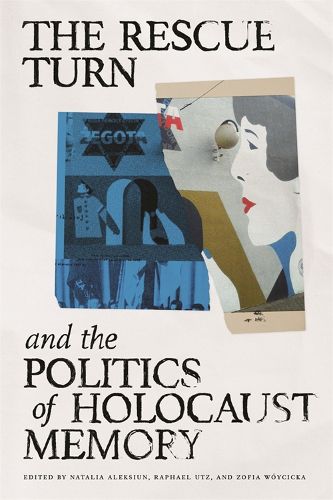Readings Newsletter
Become a Readings Member to make your shopping experience even easier.
Sign in or sign up for free!
You’re not far away from qualifying for FREE standard shipping within Australia
You’ve qualified for FREE standard shipping within Australia
The cart is loading…






This volume considers the uses and misuses of the memory of assistance given to Jews during the Holocaust, deliberated in local, national, and transnational contexts. History of this aid has drawn the attention of scholars and the general public alike. Stories of heroic citizens who hid and rescued Jewish men, women, and children have been adapted into books, films, plays, public commemorations, and museum exhibitions. Yet, emphasis on the uplifting narratives often obscures the history of violence and complicity with Nazi policies of persecution and mass murder. Each of the ten essays in this interdisciplinary collection is dedicated to a different country: Belarus, Denmark, France, Germany, Greece, North Macedonia, the Netherlands, Poland, Slovakia, and Ukraine. The case studies provide new insights into what has emerged as one of the most prominent and visible trends in recent Holocaust memory and memory politics. While many of the essays focus on recent developments, they also shed light on the evolution of this phenomenon since 1945.
$9.00 standard shipping within Australia
FREE standard shipping within Australia for orders over $100.00
Express & International shipping calculated at checkout
This volume considers the uses and misuses of the memory of assistance given to Jews during the Holocaust, deliberated in local, national, and transnational contexts. History of this aid has drawn the attention of scholars and the general public alike. Stories of heroic citizens who hid and rescued Jewish men, women, and children have been adapted into books, films, plays, public commemorations, and museum exhibitions. Yet, emphasis on the uplifting narratives often obscures the history of violence and complicity with Nazi policies of persecution and mass murder. Each of the ten essays in this interdisciplinary collection is dedicated to a different country: Belarus, Denmark, France, Germany, Greece, North Macedonia, the Netherlands, Poland, Slovakia, and Ukraine. The case studies provide new insights into what has emerged as one of the most prominent and visible trends in recent Holocaust memory and memory politics. While many of the essays focus on recent developments, they also shed light on the evolution of this phenomenon since 1945.